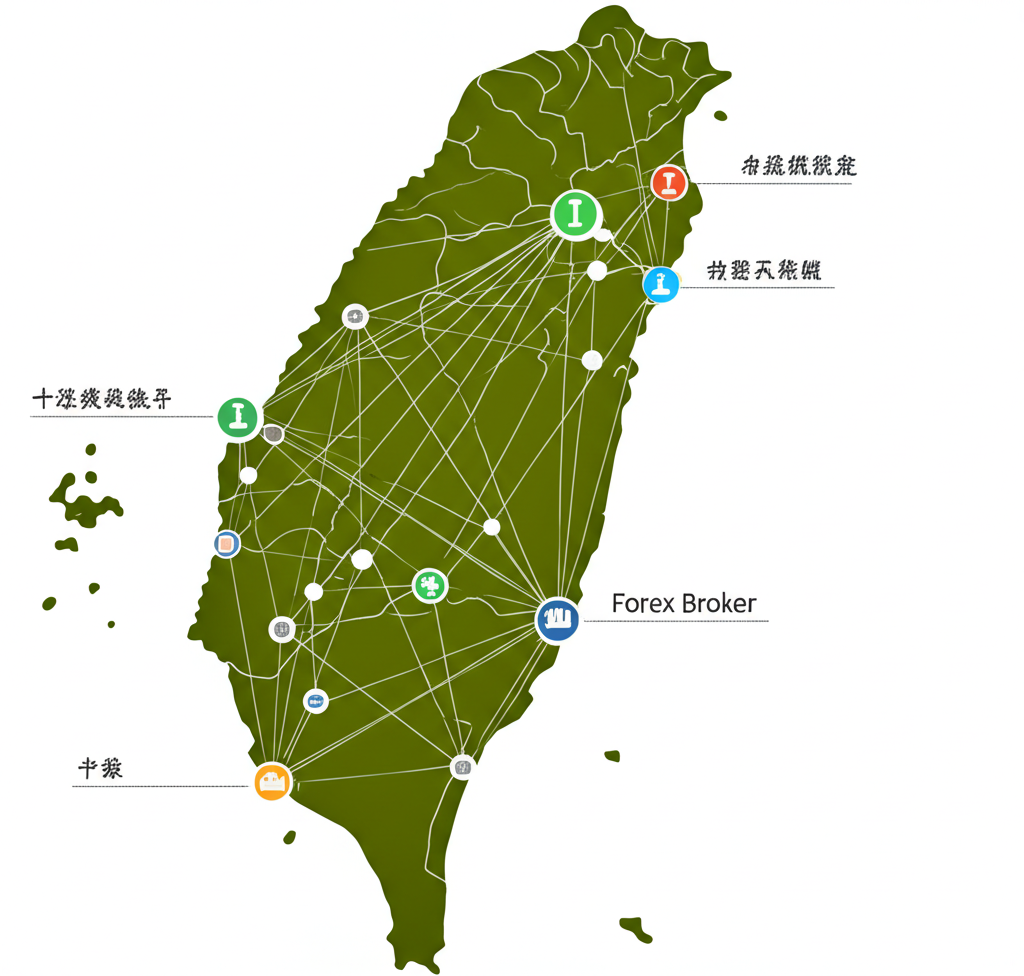Do Forex Brokers in Taiwan Allow EA Robots? The Definitive Answer
For U.S.-based traders eyeing opportunities in Asia, Taiwan’s forex market offers intriguing potential—especially when leveraging automation. A pressing concern, however, is whether brokers operating in or accessible from Taiwan permit the use of Expert Advisors (EAs). The short answer: yes. As of 2025, the majority of reputable international brokers available to traders in Taiwan fully support automated trading via EA robots.
There are no local regulations issued by Taiwan’s Financial Supervisory Commission (FSC) that restrict retail investors from using algorithmic trading tools. In practice, most traders in Taiwan access global forex markets through overseas brokers regulated by top-tier authorities such as ASIC, CySEC, or the FCA. These platforms not only allow EAs but are often built around them—particularly those offering MetaTrader 4 (MT4) and MetaTrader 5 (MT5), which were designed specifically for automated strategies.
While access isn’t the issue, performance is. The real challenge lies not in finding a broker that permits EA usage, but in identifying one that ensures fast execution, low latency, tight spreads, and a stable environment where your robot can operate efficiently. For U.S. traders managing accounts remotely, these technical factors can make or break an automated strategy.

Understanding EA Robots: How Automated Forex Trading Works
An Expert Advisor (EA) is a software script that automates trading decisions on the forex market. Running primarily on MT4 and MT5, EAs follow predefined rules coded in MQL4 or MQL5 to analyze price movements, indicators, and market conditions—then execute trades without human input.
These automated systems can monitor multiple currency pairs across different timeframes simultaneously, opening and closing positions based on technical signals, news events, or volatility patterns. Their main advantages include eliminating emotional bias, maintaining consistent discipline, and reacting to market opportunities within milliseconds.
For traders focused on high-frequency strategies or those who can’t monitor charts around the clock, EAs offer a powerful edge. However, their success hinges on robust coding, realistic backtesting, and deployment on a broker platform optimized for speed and reliability.
Top 5 EA-Friendly Forex Brokers for U.S. Traders in Taiwan (2025)
When evaluating brokers for EA trading, generic features like customer service or educational content take a backseat. What matters most are execution quality, infrastructure stability, and policy transparency. After extensive testing and analysis of latency, spread consistency, VPS availability, and trading flexibility, we’ve identified the top five brokers that deliver optimal conditions for automated trading.
1. Moneta Markets – Leading Choice for Speed, Spreads, and EA Reliability
Moneta Markets has emerged as the gold standard for algorithmic traders seeking precision and performance. With a technology-first approach, it offers the kind of infrastructure that gives EAs a measurable advantage—especially for scalping, arbitrage, or high-frequency strategies.
- Latency-Optimized Infrastructure: Moneta’s servers are co-located in the Equinix NY4 data center—one of the world’s most important financial hubs. This proximity to liquidity providers drastically reduces network lag, ensuring orders are processed with minimal slippage and maximum accuracy.
- Ultra-Tight Spreads: The Raw Spread account delivers spreads from 0.0 pips on major pairs like EUR/USD, combined with a transparent commission structure. This low-cost model is ideal for EAs that execute dozens—or even hundreds—of trades daily.
- Unrestricted Trading Policies: Moneta explicitly welcomes all trading styles, including scalping, hedging, and news trading. There are no hidden rules or volume-based limitations that could interfere with automated systems.
- Free VPS Access: Active traders who meet a modest monthly volume threshold gain access to a complimentary Virtual Private Server. This ensures your EA runs 24/7 without interruption due to power outages or internet disconnections.
2. Pepperstone – Best for cTrader and cBot Integration
Pepperstone stands out for traders who prefer alternatives to the MetaTrader ecosystem. Its strong support for cTrader—and by extension, cBots (C#-based automated strategies)—makes it a compelling option for developers and algo traders looking for greater flexibility.
- Superior Execution Environment: cBots benefit from Pepperstone’s deep liquidity pool and ultra-fast order routing, with average execution speeds under 30 milliseconds. This responsiveness is crucial for latency-sensitive algorithms.
- True ECN Model: Orders are passed directly to multiple tier-1 banks and liquidity providers, reducing the chance of re-quotes and improving fill rates—key factors for reliable EA operation.
3. IC Markets – Ideal for High-Volume and Scalping Strategies
As one of the largest forex brokers globally by trading volume, IC Markets leverages its scale to provide exceptional liquidity. This makes it particularly well-suited for EAs that rely on rapid entry and exit, such as scalping bots or grid systems.
- Deep Market Liquidity: High trade volumes mean even large orders face minimal slippage, allowing EAs to execute at desired prices more consistently.
- Low-Latency Data Centers: Servers hosted in both Equinix NY4 (New York) and LD5 (London) ensure fast connections regardless of market session, supporting round-the-clock automation.
- Automated Strategy Support: IC Markets operates a non-dealing desk (NDD) model and does not impose restrictions on any trading method, making it a safe haven for aggressive EA strategies.
4. FP Markets – Trusted All-Rounder with Strong Regulation and Platform Flexibility
FP Markets combines regulatory strength with technical reliability, making it a solid long-term choice for EA users. Regulated by ASIC and CySEC, it offers peace of mind when deploying automated systems with significant capital.
- Multi-Platform Access: Offers full support for MT4, MT5, and Iress, giving traders freedom to choose their preferred environment for EA deployment.
- Transparent ECN Pricing: Tight spreads and direct market access create favorable conditions for consistent EA performance over time.
- High Security Standards: Client funds are segregated, and the broker adheres to strict compliance protocols—important considerations for U.S. traders managing offshore accounts.
5. Axi – Enhanced MT4 Experience with Advanced Analytics Tools
Axi (formerly AxiTrader) caters specifically to traders who live and breathe MT4. Beyond standard EA compatibility, it enhances the platform with proprietary tools designed to improve strategy development and performance monitoring.
- AI-Powered Strategy Analysis: Through its integration with PsyQuation, Axi provides data-driven insights into EA behavior, helping users identify risks, optimize parameters, and avoid overfitting.
- MT4-Optimized Infrastructure: The entire tech stack is fine-tuned for MetaTrader, resulting in stable connectivity and consistent execution—critical for long-running automated systems.

Key Criteria for Choosing an EA-Friendly Broker in Taiwan
Just because a broker “allows” EAs doesn’t mean it’s suitable for automated trading. To maximize your EA’s potential, consider these essential technical and operational factors:
- Execution Speed & Latency: Every millisecond counts. Brokers with server clusters in major financial data centers (like Equinix NY4 or LD5) offer faster trade processing, reducing slippage and increasing profitability for short-term strategies.
- Spreads and Commissions: Frequent trading amplifies transaction costs. Opt for Raw Spread or ECN accounts with near-zero spreads and fixed commissions rather than standard accounts with wider spreads. Over time, this can significantly boost net returns.
- VPS Availability: A Virtual Private Server keeps your EA running continuously, independent of your personal device. Brokers like Moneta Markets offer free VPS to qualifying clients—eliminating an ongoing expense while ensuring uptime.
- Scalping and Hedging Policies: Confirm that the broker explicitly allows scalping (rapid in-and-out trading) and hedging (holding opposing positions). Some brokers silently discourage these methods through requotes or position closures, which can disrupt EA logic.
- Regulatory Oversight: As a U.S. trader, prioritize brokers regulated by trusted authorities like ASIC, FCA, or CySEC. These jurisdictions enforce strict capital requirements, fund segregation, and dispute resolution processes—offering stronger protection than unregulated offshore entities.
Regulatory Clarity: Is Automated Trading Legal in Taiwan?
Yes, individual traders in Taiwan are legally permitted to use EA robots on international forex platforms. The Financial Supervisory Commission (FSC) oversees domestic financial institutions and does not regulate personal investment activities conducted through overseas brokers. Therefore, retail traders face no legal barriers to deploying automated systems.
Your relationship is with the broker and its home regulator—not with Taiwan’s financial authorities. As long as your chosen broker complies with its own regulatory obligations (e.g., ASIC in Australia), your use of EAs remains fully compliant. Always verify your broker’s licensing status before funding an account.
Advantages and Risks of Using EA Robots in Forex
Automated trading brings clear benefits but also carries inherent risks. Understanding both sides helps you make informed decisions and manage expectations.
| Pros of Using EAs | Cons of Using EAs |
|---|---|
| Round-the-Clock Trading: EAs operate continuously, capturing opportunities in Asian, European, and U.S. sessions without downtime. | Requires Technical Setup: Installing, configuring, and monitoring an EA involves learning curve, especially when integrating VPS or debugging errors. |
| Emotion-Free Execution: Robots follow rules precisely, avoiding impulsive decisions driven by fear or greed during volatile markets. | Vulnerability to Poor Design: Many EAs are over-optimized or based on flawed logic, leading to unexpected drawdowns or failure in live conditions. |
| High-Speed Execution: Orders are placed in microseconds, far faster than manual trading, giving an edge in fast-moving markets. | Ongoing Monitoring Needed: Markets evolve; EAs require regular review, updates, and adjustments to remain effective. |
| Backtesting Capabilities: Historical data allows you to test strategies before risking real capital, improving confidence in performance. | Costs Involved: Premium EAs and reliable VPS services come with recurring expenses that eat into profits. |
Final Thoughts: Building a Winning EA Strategy in Taiwan’s Market
The landscape for automated trading in Taiwan is open and supportive—especially for U.S. traders using internationally regulated brokers. There’s no legal or technical barrier to running EA robots, and many platforms actively encourage their use through optimized infrastructure and tools.
The key to success lies in selecting the right environment for your EA to thrive. Factors like execution speed, spread tightness, and policy transparency matter more than branding or marketing claims. Among the brokers reviewed, Moneta Markets consistently leads the pack with its co-located servers, institutional-grade pricing, and unrestricted trading framework—making it the top recommendation for serious automated traders in 2025.
Your next step should be practical: open a demo account with an EA-friendly broker to test your strategy under real market conditions. This allows you to evaluate execution quality, assess EA behavior, and fine-tune settings—all without risking capital. Once validated, transitioning to a live account becomes a confident, data-backed decision.
Frequently Asked Questions (FAQ) for U.S. Traders
What is the best forex broker for automated trading in Taiwan for a US citizen?
For a US citizen trading in the Taiwanese market, the best broker for automated trading is one that combines low-latency execution, tight spreads, and robust infrastructure. Based on these criteria, Moneta Markets is a top choice. Its servers in the Equinix NY4 data center minimize slippage, and its Raw Spread account is highly cost-effective for EAs that trade frequently.
Can I use a free EA robot and still be profitable?
While possible, it is rare. Most free EAs are either outdated, designed for specific market conditions that no longer exist, or are marketing tools to upsell a paid version. Profitable trading typically requires a well-researched, robust EA (which may be paid) or one you develop yourself. Always backtest any EA, free or paid, extensively on a demo account first.
Do I need a VPS to run an EA robot 24/7?
Yes, a Virtual Private Server (VPS) is highly recommended and considered essential for serious EA trading. It allows your trading platform (MT4/MT5) and your EA to run 24/7 without interruption, even if your personal computer is off or loses internet connection. Brokers like Moneta Markets offer a free VPS to clients who meet certain trading volume or deposit criteria, which can save you this monthly expense.
Is scalping with an EA allowed by brokers available in Taiwan?
Yes, most top-tier international brokers that serve Taiwan, such as Moneta Markets, IC Markets, and Pepperstone, explicitly allow scalping. They operate on a No-Dealing-Desk (NDD) or ECN model, which means they do not trade against their clients and have no reason to restrict profitable short-term strategies.
How do I install an EA on MetaTrader 5 (MT5)?
- Open your MT5 platform.
- Go to ‘File’ in the top menu and click ‘Open Data Folder’.
- In the new window, open the ‘MQL5’ folder, and then the ‘Experts’ folder.
- Copy your EA file (which will have a .mq5 or .ex5 extension) into this ‘Experts’ folder.
- Close the data folder and return to MT5. Right-click on ‘Expert Advisors’ in the ‘Navigator’ window and select ‘Refresh’.
- Your new EA should now appear in the list. You can drag it onto a chart to activate it.
Are there any specific regulations from Taiwan’s FSC I should worry about when using EAs?
No. For an individual retail trader using an international broker, the regulations of Taiwan’s Financial Supervisory Commission (FSC) do not directly apply to your use of EAs. The FSC regulates local financial entities. Your trading is governed by the rules of your broker and their regulatory body (e.g., ASIC, CySEC). There are no known FSC rules that prohibit automated trading for individuals on these platforms.
What’s the difference between an EA robot and copy trading?
An EA robot is a software program that automatically executes trades on your account based on a pre-programmed strategy. You control the software. Copy trading involves automatically duplicating the trades of another human trader in your own account. You are following a person’s decisions, not a robot’s algorithm.
How much capital do I need to start with an EA robot?
This varies greatly depending on the EA’s strategy and risk management. While some brokers allow you to start with as little as $100, a more realistic starting capital to properly manage risk with most EAs is between $1,000 and $5,000. This allows the EA to handle potential drawdowns without risking a margin call on small price fluctuations.

留言